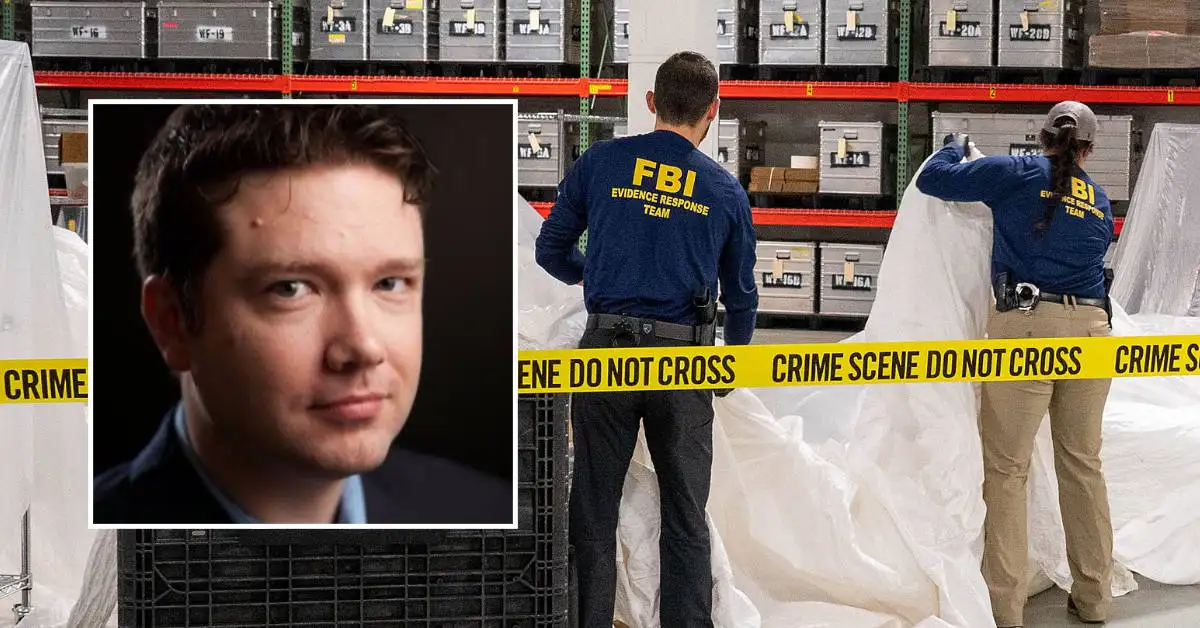
A Florida journalist whose home was raided as part of a cybercrime investigation earlier this year will not be getting his computers and cell phone that were seized by law enforcement back anytime soon.
The journalist, Timothy Burke, is also not entitled to learn the specific information that allowed federal investigators to obtain a search warrant on his Tampa-area home, according to a judge’s ruling that was made public last Friday.
Those details are apparently included in an affidavit produced by an agent with the Federal Bureau of Investigation (FBI) that was filed with an application for a search warrant prior to the May raid on Burke’s home. The affidavit was immediately sealed by a judge, and Burke’s attorneys along with the Tampa Bay Times newspaper filed motions seeking to have the document unsealed.
The investigative case largely centers around the distribution and publication of several behind-the-scenes clips of commentary programs aired on the Fox News Channel, including excerpts from an interview between former Fox personality Tucker Carlson and musician Kanye West that were not broadcast on television.
Burke claims the material was obtained from an online service that counts major broadcast television networks like Fox among its clients. His attorneys say Burke was given a username and password to the service from someone who found it online, and used the credentials to obtain the material — videos that were ultimately leaked to other publications.
Investigators believe Burke and some presently-unnamed associates may have violated the Computer Fraud and Abuse Act, the federal anti-hacking statute that criminalizes unauthorized access to websites and services. Burke has not been arrested or charged with a crime.
Immediately after the raid, the Tampa Bay Times newspaper filed a motion with the court seeking to unseal the search warrant application and related materials associated with it. Federal prosecutors did not object to releasing the search warrant itself, but said the affidavit created by the FBI agent contained specific allegations that should be kept from public view, warning that its release could compromise their investigation.
Burke subsequently filed his own motion, joining in the request for the FBI affidavit to be unsealed and further asking a judge to order the return of his phones, computers and other items seized in the raid.
On Friday, a federal judge overseeing the case denied Burke’s requests, saying the journalist had not proven that the government’s interest in keeping the affidavit from public view was outweighed by the public’s interest in his case.
“Beyond arguing that the cat is out of the bag, Burke offers no new argument that convinces the court to recalibrate the scale, which the undersigned already determined tipped in favor of the government’s compelling interest in protecting and safeguarding the integrity of its investigation at this pre-indictment stage,” Judge Sean Flynn wrote in the order.
Flynn acknowledged that, at least for now, Burke has not been officially accused of any criminal wrongdoing. But the judge also said the government had “established probable cause to believe that Burke’s home contained the fruits, instrumentalities and/or evidence of” a criminal hacking scheme.
“The items the Government is authorized to seize under the warrant do not qualify as protected work product or documentary materials under the [Privacy Protection Act], because they are contraband or fruits of the crime under investigation,” Flynn wrote.
The denial of Burke’s motion was made “without prejudice,” which means Burke and his attorneys can file a new motion requesting the return of his items in the future. The judge seemed open to granting this request if the government takes too long to investigate Burke or bring an indictment against him.
“While the government is entitled to a reasonable amount of time to review the seized materials, the time afforded to the government is not unlimited,” Flynn affirmed. “The Court recognizes that at some point not yet reached, the delay may become unreasonable and constitute ‘callous disregard; of Burke’s rights.”
Additionally, Flynn was receptive to the idea that the government may have taken records and items from Burke’s home that are not material to their investigation. Flynn ordered prosecutors to produce a list of items and records — or original copies of records — that fall outside the scope of their warrant and which can be returned to Burke. That list must be finalized by the end of this week.